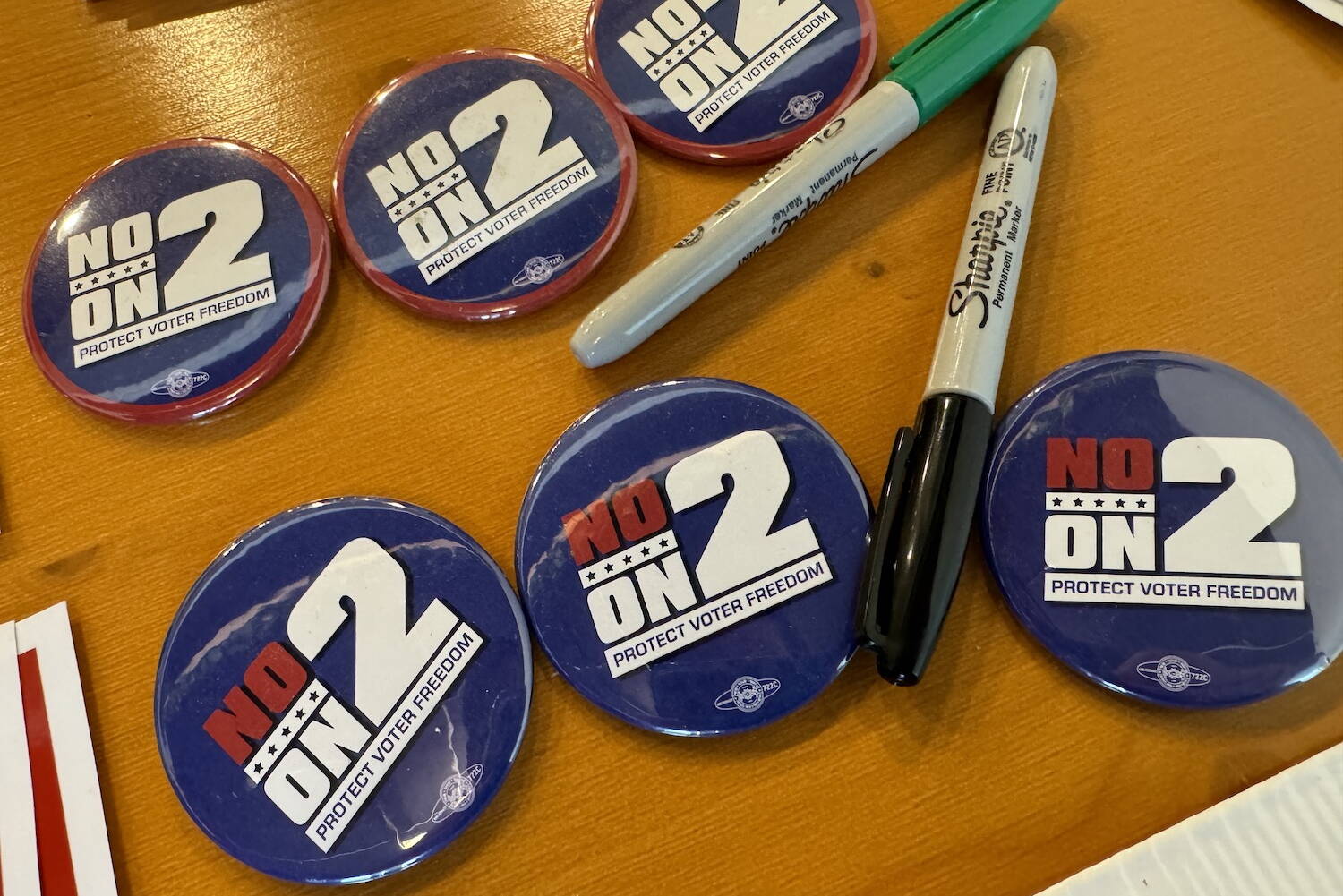An Anchorage Superior Court judge on Friday disqualified 27 signature books filled out by Alaskans hoping to repeal Alaska’s ranked-choice voting system, leaving it unclear whether the issue has enough support to advance to a November vote.
The Alaska Division of Elections must recount the signature totals by Wednesday, Judge Christina Rankin said in a 95-page order analyzing allegations that signature-gatherers violated state law while gathering support for the repeal measure.
State law requires petitioners to obtain a certain number of signatures statewide, but even though the disqualified signature books contain nearly 3,000 signatures, there isn’t any danger of missing that threshold.
What’s uncertain is whether the disqualified signatures will cause supporters to miss a separate mandatory threshold that requires a certain number of signatures from at least 30 of 40 state House district.
Before the ruling, backers had sufficient signatures in 34 districts. Former Alaska Attorney General Kevin Clarkson represented repeal supporters in the case and said that by his preliminary count, backers will lose only one district when the new count takes place.
“We are still very much in the ballot,” he said by text on Friday.
Regardless of next week’s count, an appeal to the Alaska Supreme Court is expected.
Three plaintiffs sued the Alaska Division of Elections in April, alleging that signature books were left unattended, were erroneously certified, and that the division made mistakes in the approval process.
Petition backers intervened in the case on behalf of the state, and Rankin issued a preliminary order in June that favored those who support the repeal initiative.
That order didn’t resolve all outstanding issues in the case, and Rankin conducted a six-day trial to hear testimony about signature gatherers’ behavior.
“At most, the evidence presented demonstrated limited instances of circulators signing affidavits for booklets they did not circulate, sharing booklets amongst multiple circulators, and leaving petition booklets unmonitored,” she wrote in Friday’s order.
Given that Alaska law and the state constitution strongly favors the rights of Alaskans to conduct ballot initiatives, she disqualified only 27 of the 640 petition booklets submitted to the Alaska Division of Elections.
In some cases, she accepted booklets that were certified by people whose actions caused other booklets to be ruled out of order.
Her decision said in part, “because each petition booklet is individually certified, the Court finds that it would be inappropriate to disqualify all booklets from those circulators in toto. Moreover, none of the alleged misconduct rises to the level that other courts have found warrants disqualification of all booklets from single circulators.”
Attorney Scott Kendall wrote the 2020 ballot measure that installed Alaska’s current voting system and represented plaintiffs in the lawsuit.
By text message on Friday, he thanked the court for its work and said the 27 booklets contained nearly 3,000 signatures.
“Clearly, there were serious issues in this signature drive,” he said. “The Division of Elections still needs to perform an official analysis … and then all parties will need to consider their appeal options.”
Clarkson, representing repeal supporters, said by text message that on a preliminary basis, “the decision looks mostly favorable to us. We won on a lot of issues and on a lot of books they challenged.”
The final word will come from the Division of Elections, “but my bet is we are fine.”
• James Brooks is a longtime Alaska reporter, having previously worked at the Anchorage Daily News, Juneau Empire, Kodiak Mirror and Fairbanks Daily News-Miner. This article originally appeared online at alaskabeacon.com. Alaska Beacon, an affiliate of States Newsroom, is an independent, nonpartisan news organization focused on connecting Alaskans to their state government.

